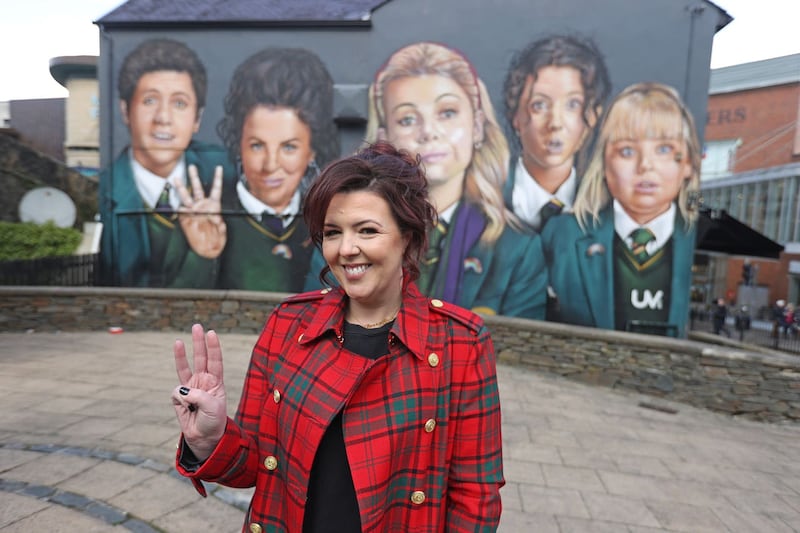An award-winning author has spoken of her efforts to address the under-representation of the rural Northern Ireland experience in literature and to bring Ulster-Scots to an international audience.
Jan Carson from Ballymena also said there was “chronic” underfunding of artists in Northern Ireland, pointing out that funding in the Republic of Ireland is five times higher.
Ms Carson, a former winner of the EU Prize for Literature, has recently returned form the US where she was part of a group of Northern Ireland female writers who spoke at universities to commemorate the 25th anniversary of the Good Friday Agreement.

She said the success of Lisa McGee’s Derry Girls had improved awareness of the situation in Northern Ireland internationally.
“I might usually be in about 25 countries a year.
“Before you had to really start at ground zero, the young people who had grown up post-1998 had no idea of what had happened here.
“Now a lot of them have watched Derry Girls and they have a kind of working concept that there was a conflict here, there was division here, roughly an idea of what the problems were.
“I was in Bulgaria this year and someone put their hand up and said ‘Is that like in Derry Girls?’, so Lisa has done an amazing job for us in terms of beginning that conversation.”
Ms Carson said that the emotional core of her work is often drawn from her experiences growing up in Co Antrim.
She said: “I personally feel I always keep getting drawn back from the places I came from and the places that made me and where I grew up because it is what I know best but also because I feel it is under-represented at the moment, particularly that rural Protestant experience.
“When my novel The Raptures first came out, I went back to my primary school and I was teaching the P7 class and they were writing stories with me, and this one wee girl had this great bit about her dad being a farmer and getting the lambs back in the barn, it was very Ballymena.
“She read the line and said ‘Jan, what’s a better way to say that’. I said ‘hold on, there’s no better way to say that, that’s your vernacular, that’s the way you use language, it’s beautiful’.
“I was able to hold up The Raptures and say ‘the kids in this book speak like you, this is based on this school and people like it so much it has been translated into languages all around the world, the way you speak’.
“I want them to grow up proud of where they are from.
“It’s important for young people from those backgrounds to see themselves represented in culture and arts as this helps to emphasise that their experiences are valid and worthy of being listened to, learned from and celebrated.
“I didn’t really see my own experience in art or culture as a child and it took me a long time to realise it was a valid experience.”
Ms Carson said her use of Ulster-Scots can cause difficulties when her work is being translated for an international audience.

She said: “If I am going to put in ‘ploughtering’ or ‘footery’ or something and I will have to wrestle with the translators saying ‘what does that mean?’
“Some English language writers who are from different continents like India or South America, they often pepper their work with Spanish terms or an Indian colloquialism and it is not translated because there is a deep respect.
“Why would I not want to leave footery or ploughtering in there as a piece of Ulster-Scots terminology? I fight for that a lot. You are not translating it into a French version, just leave it.”
Ms Carson was recently the recipient of an Major Individual Award from the Arts Council NI, but said she believed that there had to be increased financial support for the arts.
She said: “I think it is chronic. This funding is for £15,000 to write what will be my 11th book. There are people in the Republic of Ireland who are getting 25,000 euros to work on their first book.
“I feel very strongly that we talk the talk of a shared island approach to the arts, a lot of our arts organisations are shared island, but if we are going to do that we need to look at the discrepancies between funding and financial support for artists.
“There is five times more support for arts in the South than there is in the North.”
Jan Carson’s next collection of short stories, Quickly While We Still Have Horses, will be released in April.


